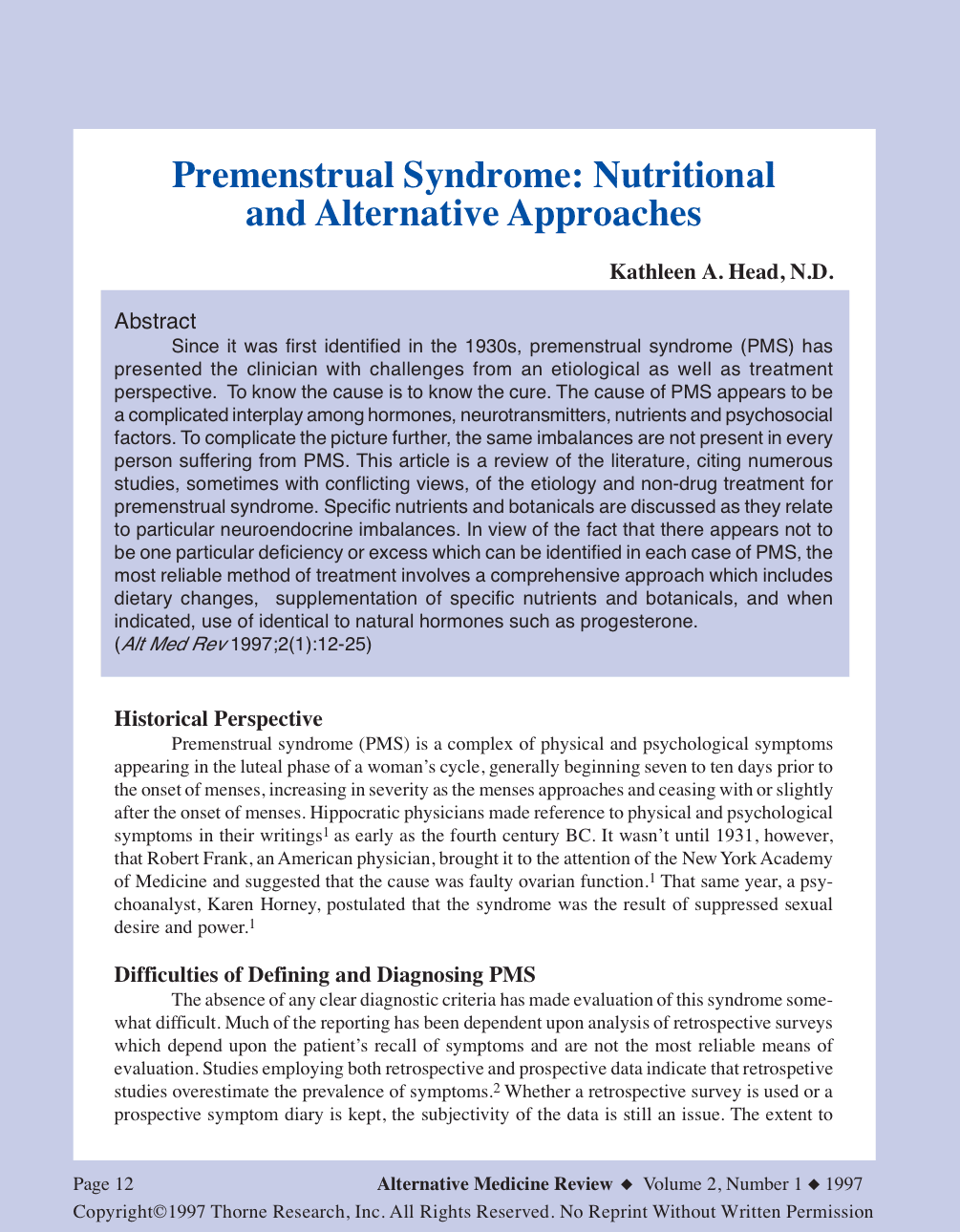Abstract
Since it was first identified in the 1930s, premenstrual syndrome (PMS) has presented the clinician with challenges from an etiological as well as treatment perspective. To know the cause is to know the cure. The cause of PMS appears to be a complicated interplay among hormones, neurotransmitters, nutrients and psychosocial factors. To complicate the picture further, the same imbalances are not present in every person suffering from PMS. This article is a review of the literature, citing numerous studies, sometimes with conflicting views, of the etiology and non-drug treatment for premenstrual syndrome. Specific nutrients and botanicals are discussed as they relate to particular neuroendocrine imbalances. In view of the fact that there appears not to be one particular deficiency or excess which can be identified in each case of PMS, the most reliable method of treatment involves a comprehensive approach which includes dietary changes, supplementation of specific nutrients and botanicals, and when indicated, use of identical to natural hormones such as progesterone. (Alt Med Rev 1997;2(1):12-25)

